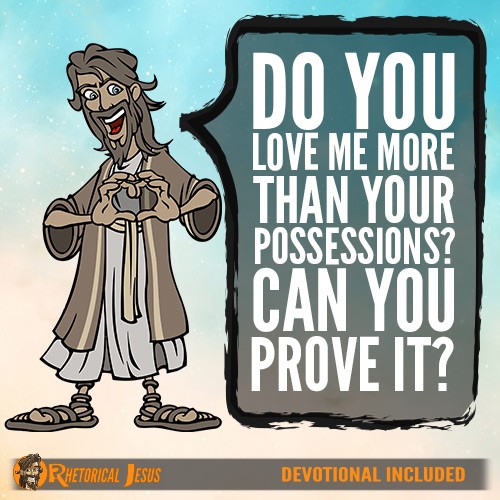John 21:15
“When they had finished breakfast, Jesus said to Simon Peter, “Simon, son of John, do you love me more than these?
Peter, Do You Love Me?
After Jesus’ resurrection from the dead, Jesus asked Peter three times in a row whether he loved Him or not. Why would Jesus ask Peter this question three times when He must have already known? Was it once for every time Peter denied Him? Perhaps it was. Jesus asked Peter the first time whether he loved Him or not, and Peter naturally said yes because he really did, and Peter said that Jesus knew he did (John 21:15a). Jesus responded to that by giving Him the command to feed His lambs, probably referring to feeding Jesus’ flock, the church (John 21:15b). Jesus used the word “agape” when He used the word “love,” but Peter responded with the “phileo” love, which is more like a brotherly love. The word for lamb is that of a “little lamb,” not a full-grown one, possibly meaning that the church would be composed of mostly young sheep or new believers.
Again, Peter, Do You Love Me?
Jesus asked Peter again if he loved Him (John 21:16), and again Jesus used the highest form of love, using the word “agape,” which is a godly, self-sacrificing love. Peter answered again that he did love Jesus, but it was a “phileo,” or brotherly, love that Peter spoke about. Since Peter answered yes, Jesus used something slightly different here: “Tend my sheep,” which is the Greek word “poimainō,” which means to “tend” or “shepherd” His sheep. Finally, Jesus asked Peter a third time if he loved Him but this time used his human-given name, “Simon, son of Jonah.” But Jesus used the word “phileo” for love, and Peter was very grieved, or, as the Greek word “lypeō” means, he was very sorrowful. Maybe Jesus was trying to get Peter to feel sorrow for his betrayal of Him before Calvary. For the last time, Peter used the word “phileo,” the Greek word for brotherly love, and again Peter said, yes, he does love Him, to which Jesus again said for him to “shepherd” or “tend” His sheep (John 21:17). Peter was grieved over having Jesus ask this three times and told Jesus, “Lord, You know all things,” indicating that of course Jesus knew Peter loved Him, but possibly Jesus just wanted him to know that He knew, even though Peter had denied Him three times.
Proving Our Love
It may be that the “these” when Jesus asked if he loved them more than He were the disciples. It could be the “these” were whom Peter had been fishing with, which could have well been family and close friends or even the disciples, whom Peter must have grown to love (John 21:1-3). But a bigger question for us is how we will answer the question “do you love Me more than these.” What are the “these” for us? Are the “these” in our lives our family, our friends, our co-workers, or even those in the church? How can we prove that we love Jesus more than “these?” We do so by feeding the flock of God or by tending to or shepherding the church if we are a pastor and by loving others with the “agape” love that Jesus kept using when asking Peter. We can prove our love for Jesus by seeking first the kingdom (Matt 6:33), and that means seeking first the King of that kingdom so that we can say, “Yes Jesus, I love you more than these.”
A Closing Prayer
Great Creator God, You loved me first before I ever loved You, so thank You for first loving me. Only then could I possibly have loved You (1 John 4:19). I thank You for your agape, sacrificial love for me, who is so undeserving, and in Jesus’ holy name I pray.
Amen
Republished by Blog Post Promoter





